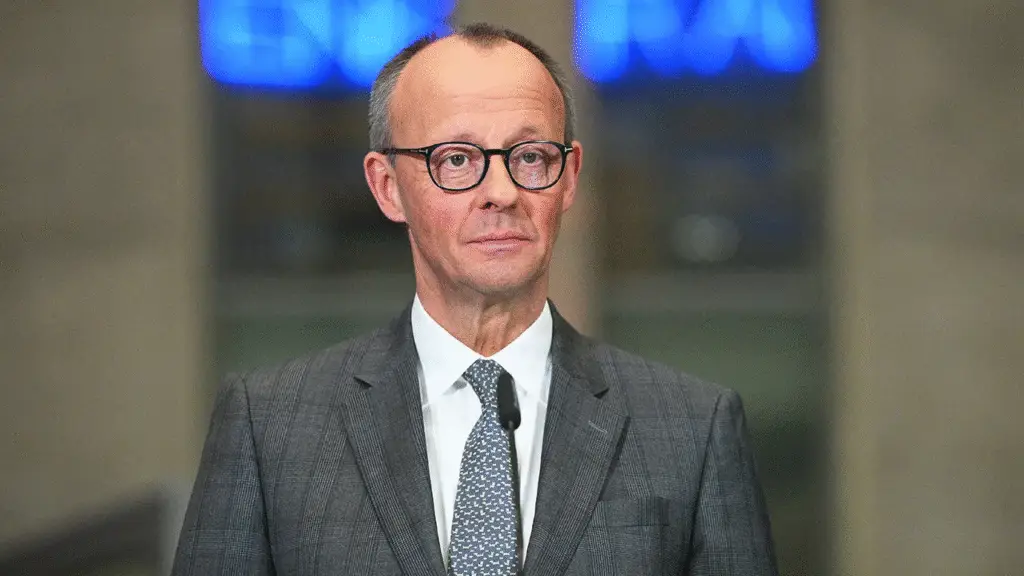Europe Faces Rising Tensions Amid Russian Gray Zone Tactics
Throughout Europe, political and military figures are cautioning that the region is slipping into a perilous “gray zone” that lies between peace and war. German Chancellor Friedrich Merz stated, “We are not at war, but we are no longer at peace either,” reflecting the tense atmosphere in the region.
Recent drone incursions, cyberattacks, and suspected violations of airspace by Russia have put NATO’s readiness to the test following years of relative tranquility. The ongoing disruptions reveal Europe’s inadequate readiness and raise doubts about the ability of weakened governments to effectively address the challenges posed by hybrid warfare.

Source: The Economist
NATO Struggles With Airspace Breaches and Political Fragmentation
Several European airports, such as Munich, Copenhagen, and Oslo, experienced shutdowns due to reported sightings of suspected Russian drones. Throughout September 2025, NATO jets were deployed multiple times in response to airspace violations in Poland, Estonia, and Norway.
The incidents underscore the delicate nature of Europe’s defense coordination, as populist politics and financial constraints impede cohesive responses. George Robertson, the former NATO chief, cautioned that “civilian infrastructure remains dangerously unprepared” for prolonged hybrid or cyber conflict.
US Commitment to European Defense Under Growing Uncertainty
European officials are expressing doubts about Washington’s reliability as President Donald Trump’s unclear position on NATO heightens transatlantic concerns. Trump often asserts that the Ukraine war “would never have begun” during his previous administration, yet his response to recent provocations has been somewhat muted.
Experts indicate that his erratic statements pose a danger of misunderstanding among both friends and foes. There are concerns that Russia might take advantage of what is seen as American indecision to intensify its gray zone operations without encountering swift repercussions.
Recommended Article: France PM Lecornu Resigns Just Hours After Naming Cabinet
Russia Tests NATO Boundaries Through Provocations and Drones
Russia dismisses claims of involvement in ongoing drone incursions, ridiculing Western allegations as a form of paranoia intended to rationalize increased defense expenditures. Intelligence reports suggest that Moscow is increasingly deploying unmanned aircraft and shadow fleets to assess NATO’s readiness.
Former President Dmitry Medvedev candidly proposed that fear and uncertainty could potentially weaken European determination. His provocative statements suggested that Russians desire Europeans “to tremble like dumb animals driven to slaughter,” highlighting a strategy of psychological warfare.
Europe Accelerates Military Coordination and Defense Spending
In response to ongoing incursions, NATO members increased air patrols and began discussions under Article 4 to evaluate collective defense measures. Poland, Britain, and France committed to providing additional resources, and member states reached an agreement to increase defense spending to approximately 3.5% of GDP.
Ukraine, with Europe’s most combat-experienced military, has commenced training NATO allies in counter-drone and electronic warfare strategies. The initiative represents a shift in dynamics, with frontline states taking on the role of mentors for their Western allies in active defense operations.
Domestic Challenges Complicate Europe’s Strategic Readiness
Even with the discourse advocating for rearmament, Europe is grappling with internal exhaustion and financial limitations. The political instability in France, the UK, and Germany poses a significant risk to the progress of defense funding and technological innovation.
Experts contend that in the absence of societal agreement, governments might find it challenging to garner adequate public backing for enduring deterrence strategies. Increasing debt levels and populist opposition persist in posing challenges to the fiscal capacity necessary for defense expansion.
Strengthening Civil Defense and Societal Resilience Remains Crucial
Experts highlight that national security demands a comprehensive societal resilience that goes beyond conventional military readiness. Former NATO chief Robertson called on citizens to be “prepared for emergencies,” highlighting the importance of local preparedness in every sector.
The collaboration between civil and military sectors is being reinforced via NATO’s cooperation initiatives, highlighted by the recent CIMIC conference held in The Hague. Experts emphasize that effective collaboration between the public and private sectors is essential for Europe to endure extended gray zone conflicts and cyber disturbances.















